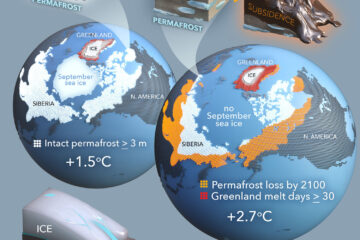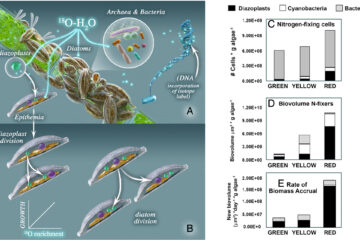Effects of elevated nitrogen and temperature on carbon and nitrogen dynamics in Alaskan arctic and boreal soils
Plant productivity in upland tundra and boreal forest is demonstrably limited by nitrogen (N) and indirect evidence from field studies suggests that decomposition by soil microbes may be similarly limited. As climate warms at high latitudes, understanding the response of soil organic matter (SOM) decomposition to increased soil temperature may be crucial for determining the net effect of warming on ecosystem carbon (C) balance because temperature directly affects decomposition but also because it has an indirect effect on C balance via nutrient mineralization. We incubated northern Alaskan soils at two temperatures (5°C and 15°C) and two levels of N addition (with and without) to directly test for N limitation of SOM decomposition and to explore the interaction between temperature and N limitation. Over the entire 924 day incubation of organic and mineral soils from two ecosystem types, we measured microbial respiration; over the initial 90 days of the incubation, we measured microbial biomass N, net N mineralization, and the isotopic signatures (δ13C and Δ14C) of microbial respiration. Across soil layers and ecosystem types, temperature always had a strong positive effect on SOM decomposition rates, whereas N addition had positive, negative, and neutral effects. When C respiration rates were high, the positive N response was generally most strongly expressed, for example, in the organic soils, in the warmer incubation, and at the outset of the experiment. Negative N responses often occurred when C respiration rates were lower, predominantly in mineral soils and at the middle or end of the experiment. In the subset of soil types where we measured the radiocarbon age of respired CO2, increased decomposition was related to increased use of older C. Net N mineralization and nitrification were not affected by temperature, but N addition increased net N immobilization in all soil layers and microbial biomass N in organic layers. Our data support the general idea that at least in these high-latitude organic soils, decomposition of labile carbon can be positively stimulated by added N, whereas decomposition of recalcitrant C is suppressed.


